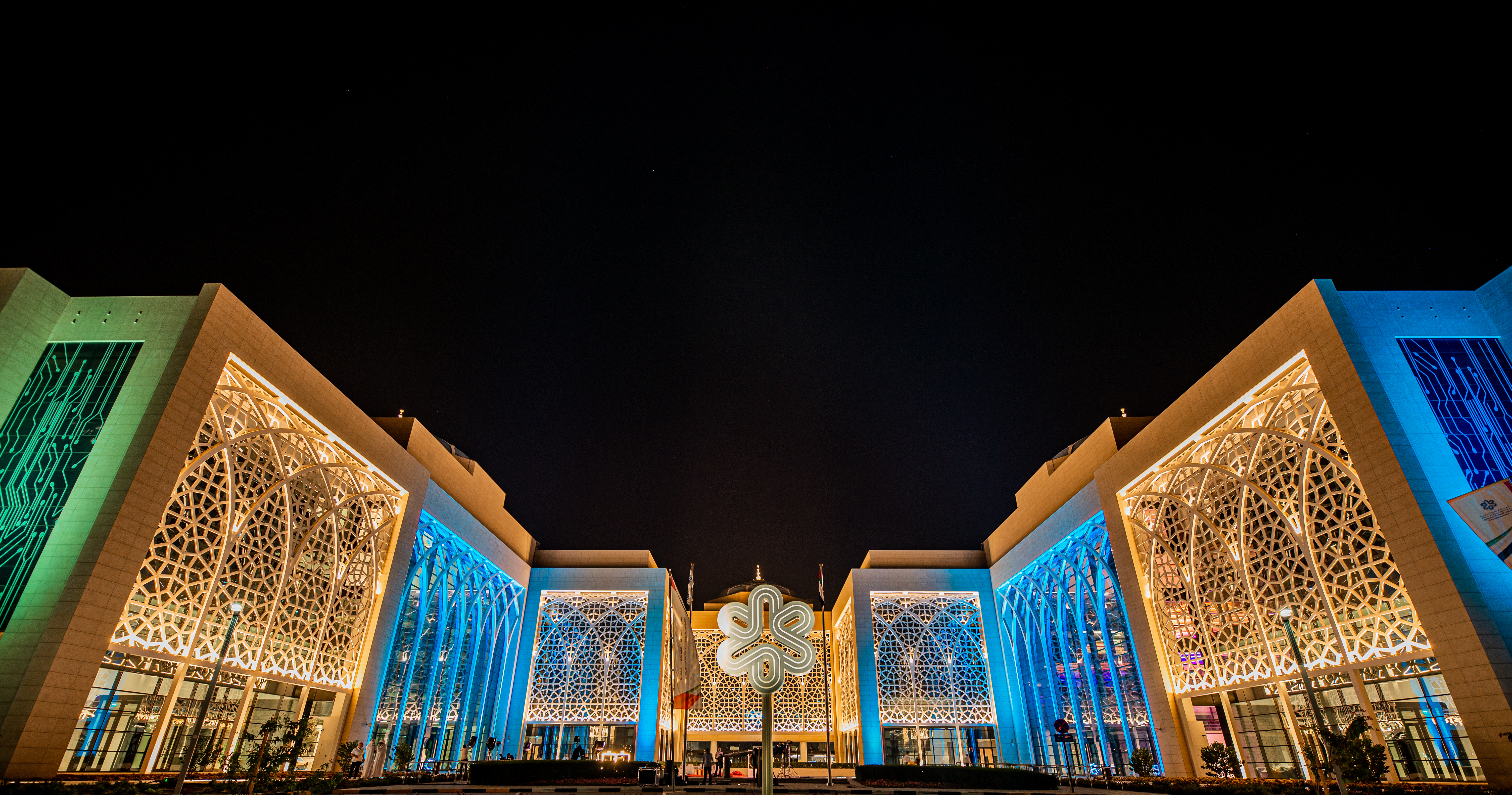Sharjah Innovation Park (SRTIP) brings Hungarian Megalux solar racing car to Sharjah, driven by vision to be a green transportation hub
Designed by Hungary’s John von Neumann University, the lightweight futuristic car is displayed at SRTIP’s SOILAB
Sharjah, UAE, February 2, 2023: Sharjah Research, Technology and Innovation Park (SRTIP) made another emphatic move toward becoming a green transportation incubation hub and a testing centre for innovative technologies by bringing the Megalux, the acclaimed Hungarian solar racing car, to Sharjah for public display.
The car, with a unique design that resembles a catamaran, was assembled and installed at the SRTIP’s Sharjah Open Innovation Lab (SOILAB) by a team from Hungary’s John von Neumann University (JvNU) which has developed the solar vehicle.
Earlier, the JvNU team drove the car to the University City and made a halt at the American University of Sharjah (AUS), a partner of SRTIP. They were welcomed by AUS Chancellor Dr. Susan Mumm.
The car was then ceremonially installed at SRTIP in the presence of officials from SRTIP, University City and American University of Sharjah (AUS). The car will be on display at SRTIP until the COP28 Conference which takes place in Dubai in November.
The Hungarian designed Megalux racing car receives energy from a 6 square meters solar panel surface. The one-wheel drive vehicle is equipped with dual-circuit hydraulic braking system. The weight of the extremely streamlined solar vehicle is just over 160 kilograms. The Megalux has plastic body and sandwich structure made of carbon fibre.
Mr. Hussein Al Mahmoudi, CEO of SRTIP, said: “At SRTIP, we are driven by a relentless thirst for green transportation solutions. After our ground-breaking agreement with Lightyear, we are proud to present the revolutionary Megalux solar car that has won wide recognition worldwide. We are all the more excited about it because the car is the result of university research, as SRTIP has strong collaboration with American University of Sharjah (AUS) and its students and faculty.”
“The electric vehicle and solar-powered vehicle industries are gaining increasing importance because of the need to reduce emissions and improve air quality to combat climate change. Recent statistics show that the electric vehicle industry is rapidly growing in the Middle East, with the number of electric vehicles on the road increasing by almost 50% in the last five years. SRTIP aims to be a frontrunner in this field,” Al Mahmoudi added.
The display of the Megalux at SRTIP represents the next step in the cooperation agreement signed in September 2022 between SRTIP and John von Neumann University Kecskemét (Hungary) that envisaged, among other things, joint development of the Megalux Solar Car.
The arrival of the Megalux in Sharjah will strengthen the partnership between John von Neumann University and the American University of Sharjah, with the goal of exploring collaboration on joint research and educational opportunities in hydrogen, laser technologies, solar vehicles, sustainability and green tech.
As part of the bilateral agreement, SRTIP will facilitate introducing John von Neumann University to companies, associations, and government entities to help in promotion of their projects and products in the region. The two sides plan to launch new projects on the basis of joint research and development, exchange of expertise and training for professionals and students in association with companies like Mercedes.
The move is in sync with SRTIP’s vision to become an incubation hub for smart and green transportation. Last October, SRTIP put on display the Lightyear 0, the world’s first long-range production-ready solar electric vehicle. The Lightyear 0 is the only solar electric car to actually start production. Being able to charge by the sun either parked or on the go, allows Lightyear 0 to run for months before ever needing a plug charge.
The MoU signed by SRTIP and Lightyear aims to explore a range of activities to drive sustainable mobility in the region, which could include the establishment of Lightyear testing facilities and sales and service support across the region and research into solar-powered EVs.
A solar car is a solar vehicle for use on public roads or race tracks. Solar vehicles are electric vehicles that use self-contained solar cells to power themselves fully or partially from sunlight. Solar vehicles typically contain a rechargeable battery, and the challenge is to be able to store and discharge electricity efficiently, and the solar panels used to capture the energy from the sun must be highly efficient.
The Megalux was one of the head-turners at the World Solar Challenge, the international competition that takes place in Australia.







